Editor’s Note: On April 19, Raúl Castro plans to step down from the Cuban presidency, giving way to the first non-Castro leader of the island in nearly 60 years. What will the transition mean for Cuba’s ongoing economic reform efforts? The following is adapted from a recent paper by Richard E.Feinberg, titled “Cuba’s economy after Raúl Castro: A tale of three worlds.”
Cuban President Raúl Castro broke important taboos in the country by legitimizing the key concepts of global economic integration, foreign investment, and private initiative. But not all of his colleagues in the Cuban Communist Party (PCC)—one of whom will take the reins on April 19, when Raúl formally steps down—are following in lock-step. (By all accounts, Miguel Díaz-Canel Bermúdez, currently the first vice president, will be the next president of Cuba.) Over six decades, the vanguard party has become the rearguard party, lagging badly behind popular opinions and aspirations. The historic task of the successor generation will be to bridge that governance gap—and to give the Cuban population the quality economic governance it so rightly deserves.
Economic reform is not easy. It requires a committed political leadership, an empowered team of smart technocrats, and well-prepared bureaucrats able and willing to execute orders. It also requires public support from well-informed and enthusiastic constituencies. Recent reform efforts have suffered from shortcomings in each of these areas.
The government in Havana is accustomed to relying on the PCC and its mass organizations (among labor, women, and youth) as its power base. This strategy ignores the newly emerging forces in Cuban society that could expand the bases of support for reform policies. The growing private economy may compete with some state-owned enterprises, but if properly cultivated could become an important pillar of a pro-reform movement (as the Chinese Communist Party has recognized). Educated technocrats in and out of government would likely embrace a reform drive; working with international agencies, the government could initiate a large-scale program of advanced training at overseas universities and institutes in reform-related topics. Similarly, the government has tended to tolerate its cultural elites, striking out only when directly challenged; more positively, the authorities could recognize that many of its cosmopolitan compatriots would embrace policies of economic openness and pluralism.
As the new administration takes charge this month (even as Raúl Castro will remain head of the PCC), observers should watch for these indicators to determine the likely pace and depth of economic reforms, and whether the new government has a political vision to achieve its goals:
1Does the new administration articulate a clear economic reform strategy that is at the same time ambitious but realistic, that sets priorities, and that addresses some of the key issues outlined here, including the tripartite hybrid economy (state and private economies and foreign investment), and declare that higher output in agriculture and energy are urgent matters of national security?
2Does the new administration appoint and empower a dynamic team of reform-minded ministers and senior advisers?
3Does the administration reach out to build constituencies outside of the PCC inner core, to engage the private economy, the educated middle classes, and independent civil society organizations (even as many are already PCC members)?
4Do authorities perceive an expanding private economy as a threat to the state or as a welcome partner in growth?
5Does the government telecommunications monopoly, ETECSA, accelerate broad public access to the internet—critical not only for democratizing information flows but also for economic modernization? If implemented promptly, the reported plans for an undersea fiber optic cable from Mexico to Cuba appear promising.
6Does the government recognize the widening gaps in income and opportunity and therefore accompany disruptive changes with well-resourced measures to assist at-risk populations?
7Does the executive branch pursue political reforms, promised earlier but seemingly sidetracked, to begin to decentralize some political power to the national legislature and provincial and municipal entities? Such political decentralization would reinforce an economic reform agenda.
The new administration in Havana may prefer to move gradually, initially to focus perhaps on monetary reform and on a limited list of low-hanging fruit, as it consolidates its own political position. Even so, it could begin to enunciate its medium-term strategy, to give the population some confidence that a more prosperous future awaits.
The Brookings Institution is committed to quality, independence, and impact.
We are supported by a diverse array of funders. In line with our values and policies, each Brookings publication represents the sole views of its author(s).

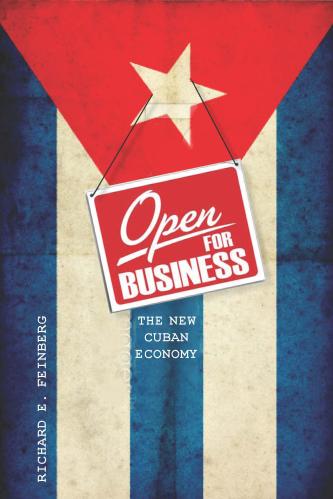
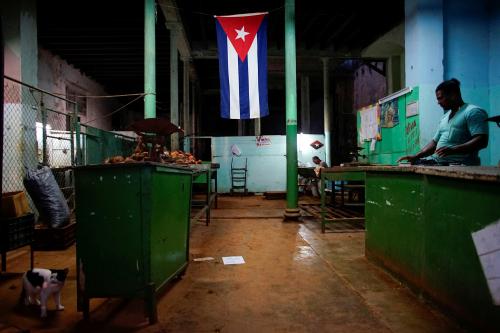
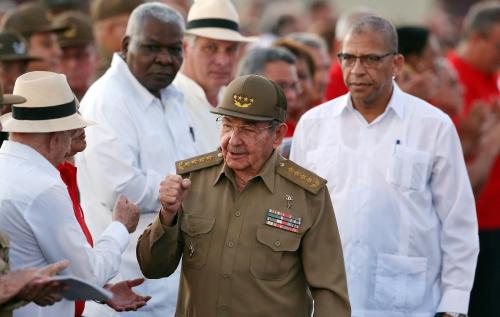
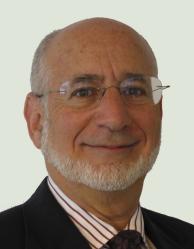
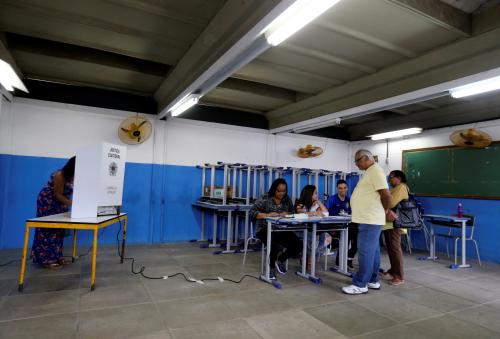
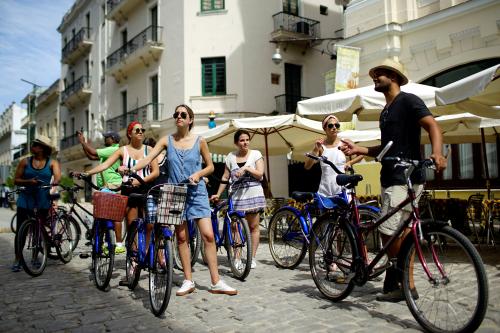

Commentary
Seven questions to ask about Cuba’s economy as Raúl Castro steps down as president
April 9, 2018